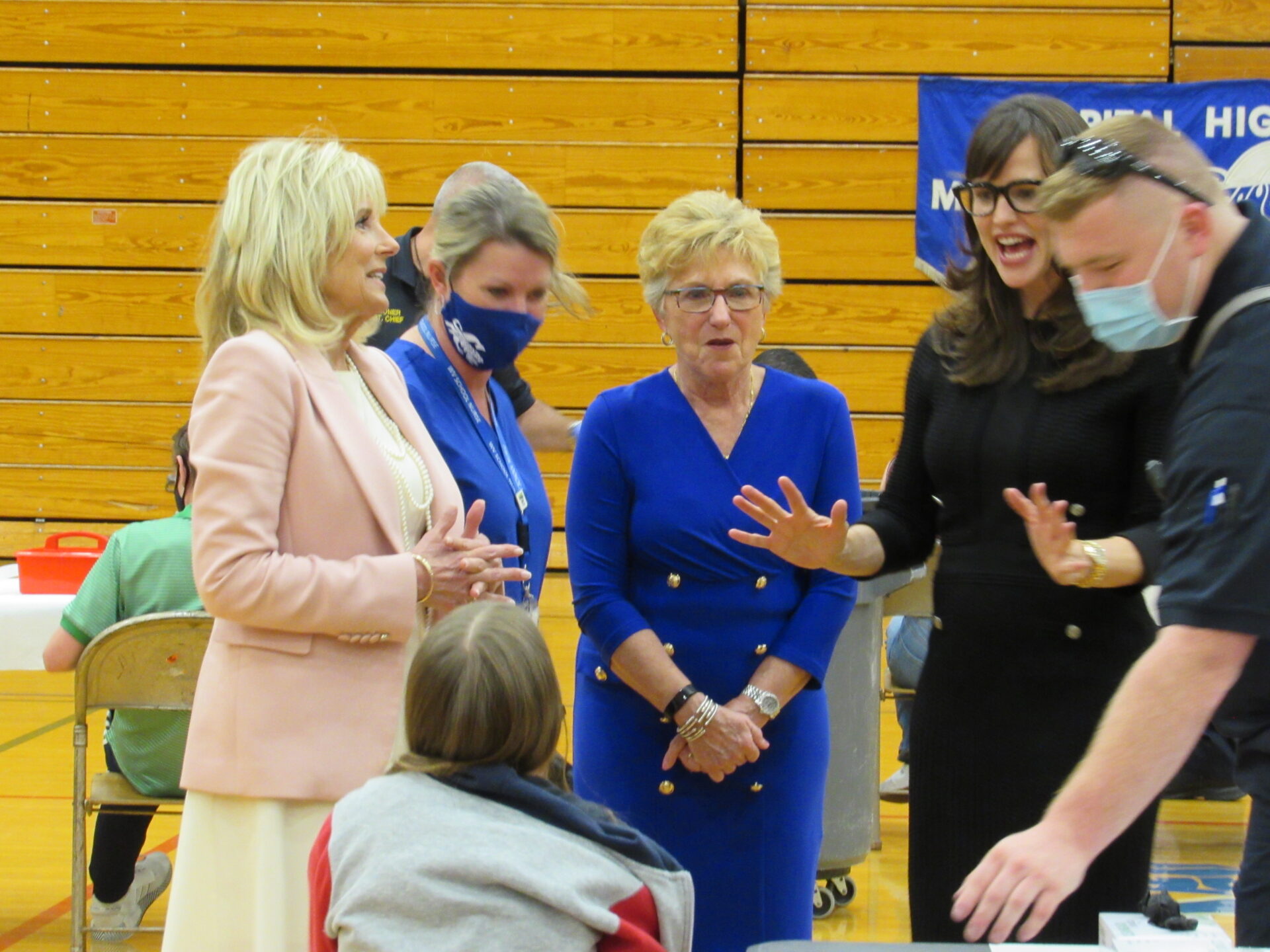Beckley native Gayle Manchin became the first West Virginian to serve as federal co-chair of the 13-state Appalachian Regional Commission.
Curtis Tate spoke with her recently about the commission’s accomplishments since President Joe Biden nominated her to lead it in 2021.
This interview has been edited for length and clarity.
Tate: In general, how do you feel about what the commission has accomplished during your time as federal co-chair?
Manchin: The commission, in and of itself, is a remarkable entity, much greater in scope and perspective than I had any idea when I came in as federal co-chair. So you have a staff of about 70 people that have a great deal of experience and expertise in what they do, whether it’s research, communications, data analysts, evaluations for projects, writing RFPs for projects. So there truly is a well-skilled workforce that continues beyond and above a federal co-chair who comes in generally at four-year intervals, and our job is to just hit the road running and let these people do what they do best.
But over the last three and a half years, I think the greatest thing that I have witnessed is people coming together, more collaboration, more connection. And I think for a couple of reasons. I think COVID – everyone was so tired of being locked up and locked in. I couldn’t travel. And so once we could travel, people wanted to get out, particularly in our region, because it’s beautiful, wonderful to be out. So I think that encouraged this beginning. Let’s collaborate. Let’s get together. Let’s work better together.
And so what I hope we have accomplished is something that will continue, far beyond me being the federal co-chair, that these relationships that have been built and established will continue, and as a result of that, our Appalachian region will continue to just get stronger and better in what it’s able to do, because we have proven through the ARISE grant, and all through our Appalachian Leadership Institute, where we bring a cohort of 40 together from all the 13 states each year to work together and learn together. These are leaders. These leaders have formed their own alumni association. They don’t want to lose that connection that they’ve made with these other individuals. And so my hope is that that will just continue to grow, and that when I look back on this incredible opportunity that I’ve had, that I will never have to say I could have, should have, that I can say, ‘Wow. You know, we did some great things together.’
Tate: You have said you wanted to break down barriers between the states and have them work collaboratively. Is that happening?
Manchin: It definitely is happening, and it’s happening among our academic institutions. We’re not, it’s not this feeling that we have to compete all the time. You look at Marshall and WVU, they’ve partnered now in so many great things. Cybersecurity is one of them that they’re working together on. But they’re also working together. They have a whole department that helps people around our state write grants, and that’s from partnership from both of those universities. Our health care facilities are starting to share and partner on training, on clinics, which not only helps the people that live here, it gives them more access to better health care.
So you look at the entities that are already here, that are now starting to share and talk with each other. Then you look at how our mayors could get together and more elected officials could work together better. I hope this will continue. People want to work together, and they want to find other people that think like them, and they are everywhere throughout the region.
Tate: There will be a change in the White House. Will the commission not be able to continue some of the work it’s done during the current administration?
Manchin: Oh, absolutely. But I think that’s always true. You know, at the end of one term and another, a new president comes in, then I think things are always in question. But I have told all 13 states this funding that we’ve had during these three and a half years, it’s not likely to continue. Things will change. And that’s the reason it was so important to take advantage of this opportunity while it was here. Not say, ‘Well, we can do that later, or we’ll wait till next year.’ We can’t do that, because there very likely will be changes, and there may be other opportunities, but I don’t think it’ll be the same opportunities.
Tate: The commission was created in 1965, and its role has changed over time. What do you see as its role in the future?
Manchin: I think that it’ll still be very important. The good thing is, governors care about their states, and if all of your state is not doing well, then that’s a problem. And so you look at West Virginia. Now, our whole state is a part of the Appalachian region. But take the state of Kentucky. Eastern Kentucky is ARC country. Western Kentucky is bluegrass, horse racing, so two very different climates within one state. So as governor, if either one of those parts of your state is not doing well, it affects the whole state.
I think governors who just have counties of their state as part of the ARC still understand the importance of the better the Appalachian region does, the better their state does. I hope that we continue to send that message, that if all of our, if our whole Appalachian region does better, we’re going to have 13 states that are doing better.
